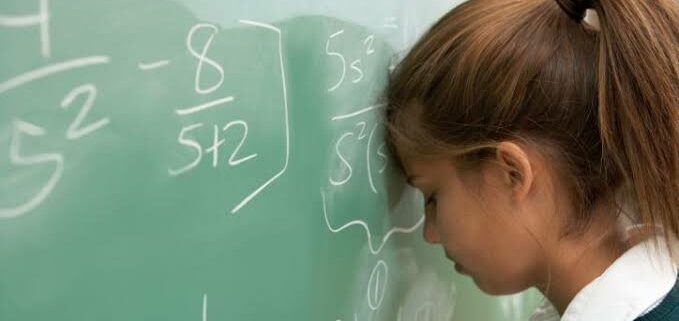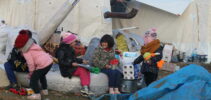Six in ten girls (62%) in public schools do not know anyone who works professionally in STEM areas (acronym in English to indicate science, technology, engineering and mathematics). Among students from male gender, the percentage is lower, 42%. The results are a guide to understanding the impact of the lack of female representation.

ADVERTISING
Boys and girls respond
Does anyone know a woman who works in STEAM?
- 57,1% say no.
Among those who have someone with this profile in their midst, the most common are female mathematicians (18,7%). Next, mention is made of physical women (6%), chemicals (5,9%) and engineers (4%).
Is math the hardest subject?
- 44% of girls consider mathematics to be the most difficult subject
- only 28% of boys.
For girls, mathematics is the most important subject. Next come financial education, self-defense/first aid, Portuguese and science.
📍In Belém
There, the students said they wanted to take sex education classes, as a way to prevent teenage pregnancy and also to protect themselves against sexual violence, in its different forms.
ADVERTISING
As the founder of Go Girls and creator of the study, Deborah De Mari, what was observed throughout the survey was that Students with more aptitude for exact science subjects generally have a good report card and enjoy school.
She also points out that there are girls who value education more, as they see it as a way to develop their potential, and others who, “due to a series of issues”, including the fact that they did not assimilate content during the pandemic and the discouragement family, they are no longer as interested in studying.
“The first subjects affected by this lack of interest were those with which they have less affinity, in which they see less female representation, less future. The first of them is mathematics itself, which has a lot of this symbol of difficulty and of being an unfeminine territory.”, says Déborah, adding that, for many students, there is “disconnection” between what they learn and what they encounter in reality.
ADVERTISING
Another factor that weighs against girls is the gender stereotype, in the sense that images associated with women still influence students’ choices. According to Deborah, Many students choose to follow paths that, in theory, should give them more popularity and less rejection from their interpersonal circle, something important, especially during adolescence.
“I think there is a fear, in some way, of confirming other people's expectations, that this will lead to nothing. It's as if they are expecting something for themselves that is impossible to achieve or that is not for them. A fear of insisting on it and then confirming disbelief. Another thing I feel is the following: even girls who are interested, when they are younger, around 13 years old, become discouraged over time, in order to continue fitting into current standards. As they think that liking something doesn't bring any attributes in terms of being well-liked, popular among friends, many girls who have talent give up along the way.”, highlights Déborah.
For Déborah, achieving a more egalitarian environment depends on “commitment in all spheres”, with the involvement of parents and educators. “Gender inequality, which is already very serious, will deepen further if we do not act quickly and do not act now”, she concludes.
ADVERTISING
The research was carried out via questionary with 1.232 boys and girls aged 10 to 17 years old, with a sample of 37.400 elementary school students from public schools in four regions of the country. In addition, interviews were also carried out with 230 girls aged 10 to 18, visits to 17 schools - ten of which were public and seven private - and in-depth interviews with five girls with high academic performance from the five regions of Brazil, in addition to 24 Circles of conversation. The investigation lasted a year and was in partnership with the creative research consultancies 65|10 and Studio Ideias.
The report “Curious girls, women of the future. Brazilian girls and insertion in STEM: an abyss in the present and a horizon for the future” can be read, in full
(With Brazil Agency)





